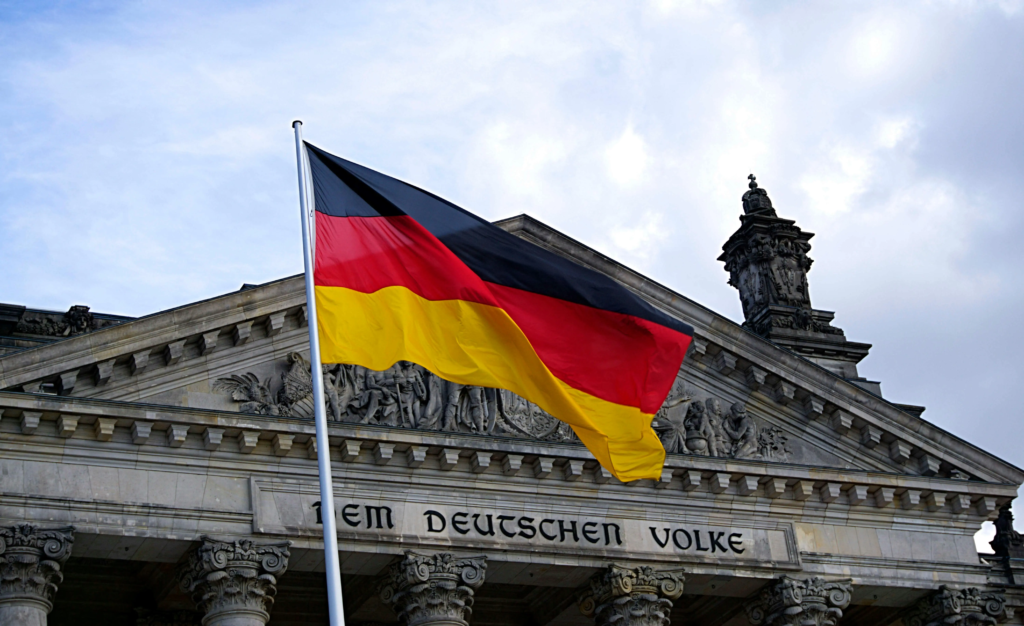Germany’s Mistakes: The reasons behind the current economic crises

Dhruv Moondra
November 16 2024
Fellow readers,
Germany’s economy is a mammoth. Being well known for its massive industrial base, high quality exports and excellent standard of living, it’s no surprise that it is the powerhouse of the European economic engine.
However, the current German economy is in doldrums. Aside from all structural issues that have been persisting throughout the years, Germany’s long list of problems continues to grow. After a terrible year of 0.3% GDP contraction in 2023, the country is predicted to lose another 0.2% this year, hailing it the world’s worst performing advanced economy, without a bright future.
But what led to this situation? How did the once robust and thriving economy fall to such a tragic path?
Well, there is no one answer but rather a multitude of mistakes and problems that were overlooked for a long time, while some were more recent that exacerbated the problem to a very large extent.
The first and most famous mistake of the German government was to eliminate its dependency on nuclear power entirely for Russian gas. This made Germany incredibly vulnerable which was proven when Russia cut off its gas supply to Europe in retaliation to western sanctions. At the time, approximately 55% of Germany’s gas supply came from Russia causing energy prices to reach sky high levels of 8.8% mainly due to high food and energy costs which hit the poor the hardest. Secondly, the impact of an exponential increase in energy prices meant much higher costs of production. In economics we learn that supply/output reduces with an increase in production costs and in this case, the quantity produced in Germany fell by 18%, a catastrophic blow to GDP. Moreover, since German manufactured products were now much costlier to produce, it weakened competitiveness in the international market effectively reducing exports which is the main driver behind the German economic engine.
Additionally, another major problem Germany faces is its demographics. The country faces a severe job shortage due to a lack of immigration and a retiring workforce. This has had enormous repercussions on productivity and economic output. According to the German economic institute, the lack of skilled labour would cost Germany 49 billion euros alone. On top of this, the shortage of workers in practically every industry has forced up the equilibrium wage rate to very high levels, deteriorating profit levels and the competitiveness of German industry further. What’s more the addition of strong labour unions has meant that companies are forced to keep unnecessary workers which in turn has resulted in decades of underinvestment.
So why has the government been so unsuccessful in meeting the labour shortage?
The answer to this lies in the fact that efforts to make Germany more attractive to potential employees have not been sufficient. The nation continues to remain notorious for endless paperwork which acts as a deterrent. While the government has introduced the Skilled Immigration Act in 2020 it has not fully eliminated the bureaucratic inadequacies associated with obtaining work visas. Furthermore, unlike other developed nations like the US, UK and Canada, foreigners are faced with the hassle of learning German if they want to integrate with society and while the government has tried to work on it without success, this challenge makes other countries more attractive. Lastly, many skilled professionals in Germany earn less than their counterparts in countries like the USA, Canada, and Australia. For instance, a software developer’s salary in Germany is 85000 euros compared to 120000 euros in silicon valley. Consequently Germany has not been able to attract the most talented professionals, hampering innovation and growth.
The cumulation of all these problems have helped create the perfect storm for Germany: China. You see out of all the major industries in Germany, the automobile sector is the biggest of them all. For decades, German cars have dominated the global car market with their unbeatable beauty and performance standards. Moreover, since the last decade China has become the biggest market for German products in the world. The overdependence on China has backfired due to the economic slowdown which has significantly lowered global sales. What’s more, Chinese brands, particularly EVs, have become so competitive with high government subsidies that they are now beginning to outperform German brands in terms of both price and quality. At the same time, brands like Volkswagen, BMW and Mercedes are struggling to catch up with new technologies thanks to Germany’s over-regulation that slows down innovation and decision making. The result is that Volkswagen and Mercedes both reported a 14% and 16% decline in sales respectively last year while Chinese EV brands are rapidly capturing global market share.
Ultimately, the result of all the disastrous economic mismanagement over the years have not only increased inflation but they have reduced output, profit margins and investment which in turn converted highly sought after German brands into those that struggle to exist. To top it all off, Germany has and continues to suffer from inadequate public investment to “balance” fiscal expenditures and now the quality of infrastructure has deteriorated, hindering productivity improvements and economic growth.
In conclusion, unless the government doesn’t make radical reforms and changes in legislation and governance the future of the country remains bleak.
Works Cited:
https://www.perplexity.ai/search/how-bad-is-the-german-economic-nMNkJgbsQ2a.Q2mrmUbDIQ
https://www.politico.eu/article/germany-economy-bad-worse-recession-gdp-robert-habeck






Leave a Reply
You must be logged in to post a comment.